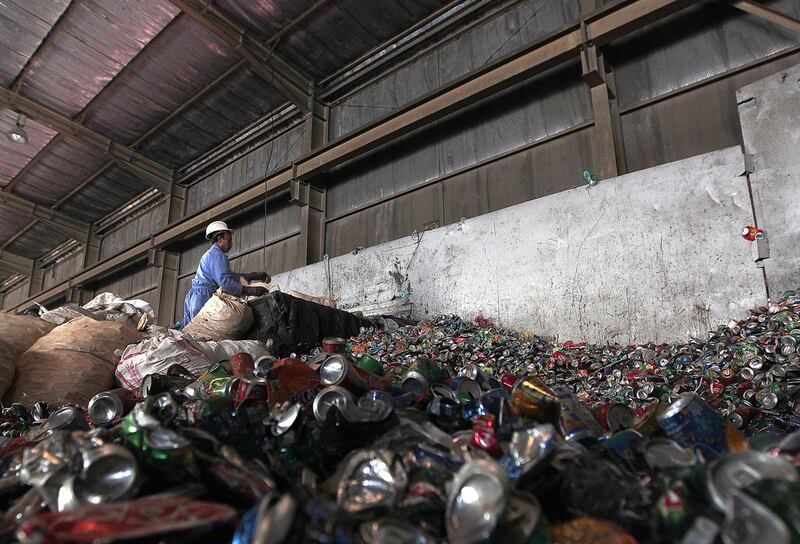For all the advances that have transformed the UAE into a modern country in just over 40 years, attitudes about recycling remain a curious anomaly. Waste streaming is only offered in a few residential areas and although the scope is steadily increasing, most residential and industrial waste ends up in landfills in the desert.
The UAE’s vast areas of empty land mean these landfills are a cheap and easy solution, at least in financial terms. The downside is it makes recycling less economically viable and less able to pay for itself in the form of recovered resources. In other developed countries, recycling is driven in large part by the high cost of dumping as much as by concerns about sustainability. In the UAE, by contrast, anyone can dump almost any amount for free and there is no impediment to simply putting all of one’s rubbish in one bag and forgetting about it.
But as The National reported yesterday, moves are already in place to divert more waste from landfills. This includes the 100 tonnes of old clothes each year that Hands Industries in Sharjah repurposes as rags, Etihad Rail's use of construction debris for the rail line in Al Gharbia and rubber from worn-out tyres being reconstituted to make a jogging track on Al Majaz waterfront.
These are all important initiatives but recycling in the UAE remains in its infancy compared to some other places. The question is how can we catch up, ideally through market-based options rather than prescriptive rules imposed by the government.
Part of the recycling challenge is the wide range of attitudes of those who live in the UAE, ranging from expatriate workers accustomed to extensive and sophisticated recycling regimes through to those from cultures that discard rubbish without a second thought.
Experience overseas has shown that recycling rates improve when dumping unsorted waste comes at a cost. This not only prompts residents to think about what they throw away and to find ways to lessen the amount of material sent to landfills but also improves the economic business model for streaming waste. A 50 fils deposit on aluminium cans, for example, would either encourage those buying them to trade them in or create an option for someone else to make some extra money by retrieving them from rubbish bins. The key to lessening the amount of rubbish going into landfills will be in a series of small steps.





